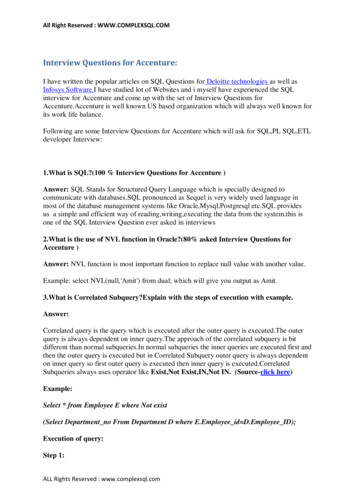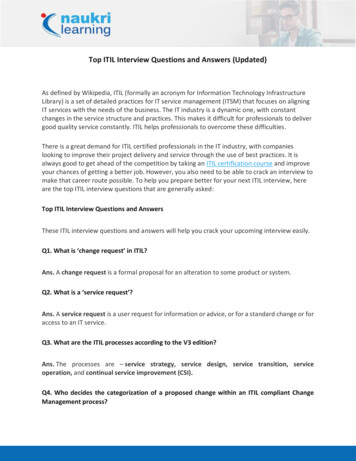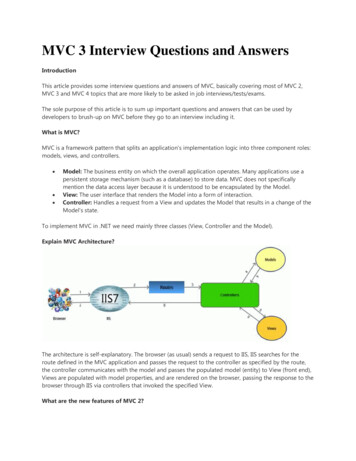
Transcription
zzzzzzzz30 behavioralinterviewquestionsto identify high-potential candidates1
Introduction Why do behavioral interview questions matter? 3 6 soft skills to reveal potential 4What questions to ask and what to listen forWhat’s inside? Adaptability 6Culture add 9Collaboration 12Leadership 15Growth potential 18Prioritization 21How to get the most out of every interview Help every candidate perform their best 24Ask unexpected questions 25Pay attention to what they ask 26Use the right hiring tools throughout your process 27Conclusion2
Why dobehavioralinterviewquestionsmatter?Asking behavioral questions isa good way to spot candidateswho’ll excel.While every interview is a littledifferent, it helps to have a go-to list ofquestions on hand. This can save youtime and make your interviews moreconsistent, reducing the potential forbias in your hiring process.We surveyed nearly 1,300 hiringmanagers about the soft skills theylook for and the behavioral questionsthey ask. Read on to discover theirtop questions and what to listen for incandidates’ answers.57%of talent professionalssay they struggleto assess soft1skills accurately.1 LinkedIn, Global Talent Trends 20193
6 soft skillsto revealpotentialThe soft skills that matter most varyamong roles and companies, butthere’s often overlap. To find out whichskills are most consistent in highpotential candidates and successfulhires, we asked hiring managers whatthey typically look for.Here are the top 6 skills they identified andranked in order of importance:1 Adaptabity4 Leadership2 Culture add5 Growth potential3 Collaboration6 Prioritization4
Adaptability5
69% of hiringmanagerssay the mostimportantsoft skill theyscreen for isadaptability.2Adaptibility is essential forthriving in a rapidly changingwork environment.Given that 54% of employeesmay require significant reskillingor upskilling over the next fewyears to keep pace with newtechnology and evolving business3needs, adaptability is essential.Employees who are adaptableare more likely to achieve betteroutcomes as priorities shift orsetbacks occur, since they'realready comfortable makingstrategic adjustments.2 LinkedIn, The Most Popular Interview Questions to Reveal Key Soft Skills 3 World Economic Forum, The Future of Jobs Report 20186
5 questions to help youscreen for adaptabilityMost Popular12345Tell me about a timewhen you were askedto do something youhad never done before.How did you react?What did you learn?Describe a situation inwhich you embraceda new system, process,technology, or idea atwork that was a majordeparture from the oldway of doing things.Recall a time whenyou were assigned atask outside of yourjob description. Howdid you handle thesituation? What wasthe outcome?Tell me about thebiggest change youhave had to deal with?How did you adapt tothat change?Tell me about a timewhen you had toadjust to a colleague’sworking style in orderto complete a project orachieve your outcomes.What to listen for Excitementabout tackling new challengesand willingness to leave theircomfort zone, knowing they’lllearn something valuable fromthe experience.What to listen for Eagerness toexplore new ways of workingand improve based on whatthey learn; if they discovereda better way; whether theyembraced the change.What to listen for Understanding that their jobmay evolve and willingness totry something new and takethe necessary steps to ensurethat they were successful.What to listen for Acceptancethat change is inevitable. Thatthey focused on how they couldadapt successfully, evaluatinga new situation and finding thesupport they needed.What to listen for Willingness tobe flexible when it’s required.Ability to reflect on what theylearned from the experience,both good and bad.7
Culture add8
Culture adds have thepotential to do great thingsat your company.Companies withinclusive talentpractices generate upto 30% higher revenueper employee.They should be fundamentallyaligned with your company’smission and core values. Butfinding the right person for the jobdoesn’t mean finding someonewho’s exactly like everyone else.4That’s why many hiring managershave stopped evaluating for “culturefit” and are now asking themselveswhether candidates are a “cultureadd”—someone who doesn’t justpreserve your existing culture, buthelps it evolve and grow.4 Deloitte Insights, Diversity and inclusion: The reality gap9
5 questions to help youscreen for culture addsMost Popular12345What are the threethings that are mostimportant to you ina job?Tell me about a timein the last week whenyou’ve been satisfied,energized, andproductive at work.What were you doing?What’s the mostinteresting thingabout you that’s noton your resume?What would make youchoose our companyover others?What’s the biggestmisconception yourcoworkers have aboutyou and why do theythink that?What to listen for AlignmentWhat to listen for An indicationWhat to listen for Signs that abetween what’s most importantto them and what the role andcompany have to offer.that the work environment andday-to-day responsibilities areright for them.candidate brings somethingnew and unexpected to yourculture, even if it’s unrelatedto their specific role.What to listen for Thoughtful,honest answers that tellyou what they’re reallythinking—not what theythink you want to hear.What to listen for Self-reflection and transparency.The best answers willdemonstrate that thecandidate is open with thepeople around them.10
Collaboration11
50% of greatcollaboratorsalso tend to betop performers.5When a role requiresteamwork, strongcollaboration skills makea big difference.Done right, collaborationimproves productivity, morale,and order. But when people aren’tgood at collaborating, they cancreate roadblocks for colleagues.In a role where your new hire willneed to work well with others,assessing for collaboration canhelp you find someone who willsucceed and drive others towardgreater success.5 Harvard Business Review, Collaborative Overlord12
5 questions to help youscreen for collaborationMost Popular12345Give an example ofwhen you had to workwith someone who wasdifficult to get alongwith. How did youhandle interactions withthat person?Tell me about atime when you werecommunicating withsomeone and they didnot understand you.What did you do?Tell me about oneof your favoriteexperiences workingwith a team and thecontributions you made.Describe the bestpartner or supervisoryou’ve worked with.What part of theirmanagement styleappealed to you?Can you share anexperience where aproject dramaticallyshifted direction at thelast minute? What didyou do?What to listen for A willingnessto try to see things from theother person’s perspective byidentifying the cause of thetension and finding ways toimprove the relationship.What to listen for Patience.Great collaborators take thetime to make sure they’re beingunderstood and can adjust theirstyle to align with others.What to listen for Energy andmotivation via teamwork. Ahealthy mix of “I” and “we”statements to communicateboth individual and teamcontributions.What to listen for Anunderstanding of their ownworking style and what kindof personalities they workbest with.What to listen for Focus onkeeping the team alignedand comfort with tappingcoworkers for additional helpwhen a project demands it.13
Leadership14
50% of employees haveleft a job to get awayfrom a bad boss.6Even when you’re notinterviewing for a leadershiprole, hire people who can inspire.Organizations with strongleadership are 13x more likely to7outperform their competition.On the flip side, poor leaders canmake their teams less motivated andefficient and more likely to quit.It’s not just the leader’s own skillsand vision that drive that success—it’s their ability to inspire, motivate,and unleash the potential in others.No matter what seniority level you’rehiring for, it never hurts to think abouta candidate’s leadership potential.After all, you could be hiring thecompany’s future CEO without evenrealizing it.6 Gallup, Employees Want a Lot More From Their Managers 7 Development Dimensions International, Global Leadership Forecast 201115
5 questions to help youscreen for leadershipMost Popular12345Tell me about thelast time somethingsignificant didn’t goaccording to plan atwork. What was yourrole? What wasthe outcome?Describe a situationwhere you needed topersuade someone tosee things your way.What steps did youtake? What werethe results?Tell me about a timewhen you led byexample. What didyou do and how didothers react?Tell me about thetoughest decision youhad to make in the lastsix months.Have you ever had to“sell” an idea to yourcoworkers or group?How did you do it?What were the results?What to listen for Thoughtfulreflection and a strong sense ofownership. True leaders don’ttry to shift the blame to others,but consider what they couldhave done differently.What to listen for Strongleaders establish credibilityand use compelling evidence toreinforce their viewpoint, ratherthan acting like they know best.What to listen for Understandingof how their behavior impactsthose around them. Thatthey hold themselves to ahigh standard, and are aninspiration to their team.What to listen for Carefulconsideration of outcomes.Great leaders seek advicewhen they need it—but theydon’t shy away from makingthe final decision.What to listen for Assertivenesswithout being pushy; the abilityto create a dialogue and listen toconcerns, with the ultimate goalof making everyone happy withthe plan.16
Growth potential17
The cost ofreplacing anemployee is about1.5x their salary.8Hire someone with growthpotential so they can developthe role and make it their own.Most candidates are interested in advancing their career, not justdoing more of the same.While it’s tempting to find candidates with exactly the same skillsand level of experience as the team members you’re replacing, hiresomeone with potential to grow into the role. It will earn you theirloyalty—making them more likely to stay for the long haul.8 LinkedIn, Why More Employees Are Considering Leaving Their Companies [INFOGRAPHIC]18
5 questions to help youscreen for growth potentialMost Popular12345Recall a time whenyour manager wasunavailable when aproblem arose. Howdid you handle thesituation? Who didyou consult with?Describe a time whenyou volunteeredto expand yourknowledge at work,as opposed to beingdirected to do so.What would motivateyou to make a movefrom your current role?When was the lasttime you asked fordirect feedback froma superior? Why?What’s the biggestcareer goal you’veachieved?What to listen for The ability to riseto the occasion without steppingon toes. Great candidates respectall stakeholders and exploreoptions before making a decision.What to listen for Eagernessto learn and a willingness toask for the resources. Invest incontinuous learning and activelyseek out new opportunities.What to listen for Signs that thecandidate is more invested ingrowth opportunities than theyare in an immediate payoff;that they are interested inbeing challenged.What to listen for That theyregularly request feedback.An indication that thecandidate sought constant selfimprovement in their current/previous role.What to listen for Motivationand drive. The candidate isn’tboastful, but they take pridein their achievements anduse each one to help them bemore successful.19
Prioritization20
The ability to plan,organize, and prioritizework is ranked as thethird most desirablequality in a new hire.9Candidates who’ve masteredprioritization can jugglekey tasks.Look for people who can manage their time effectively and payclose attention to details to ensure that things don’t fall through thecracks. This is especially important in roles that have firm due datesand tight project timelines. When employees know how to prioritize,they’re less likely to drop the ball—or to burn themselves out.9 NACE’s Job Outlook for the Class of 2014 Here are the soft skills most important to your business21
5 questions to help youscreen for prioritizationMost Popular12345Tell me about a timewhen you had to juggleseveral projects at thesame time. How didyou organize your time?What was the result?Tell me about aproject that youplanned. How didyou organize andschedule the tasks?Describe a time whenyou felt stressed oroverwhelmed. How didyou handle it?Give an exampleof a time whenyou delegated animportant tasksuccessfully.How do you determinewhat amount of time isreasonable for a task?What to listen for A clearand proactive process fororganizing their time, likeblocking off their calendar,creating a to-do list, andconfirming deadlines.What to listen for A methodicalapproach to planning andstrong self-discipline whenmeeting deadlines anddriving a project through tocompletion.What to listen for Signs thatplanning and prioritizationhelp the candidate to staycalm and focused, but thatthey also know how to lightenthe load by delegating tasks.What to listen for Anunderstanding of how todelegate and drive success.Candidates who aregreat at prioritizing makesure they’re clear aboutdeadlines and expectations.What to listen for Signs thatthey think carefully about howthey’re spending their timeand that they seek a healthymiddle ground betweenrushing and perfectionism.22
How to get the mostout of every interview23
Help everycandidateperform attheir bestSome candidates are just better atinterviewing than others. But that doesn’tnecessarily mean they’re the right personfor the job.By helping every candidate show off theirbest self, you can get a better read on theirpotential—and make a more informeddecision.Here are some steps you can take to createa more supportive interview process.Equip them with the STAR method.The STAR method (situation, task, action, result) allows candidates to answeryour questions in a structured way. Here’s a template you can send in advanceto help them apply this method.Get template Allow them time to answer.Give candidates a moment to reflect on a question and resist the temptation tointerrupt when they’re speaking. Make a note of what you want to say so you’llremember to bring it up later.Ask for specifics.When you ask behavioral questions, make sure to focus and probe for realworld examples, not hypotheticals.Follow up.If a candidate’s answer seems incomplete, try to avoid making assumptions.Instead, ask follow-up questions to fill in the blanks and gain a betterunderstanding. You can also use this approach in other situations.24
Ask unexpected questions.By asking unexpected questions, you may be able to get a better sense of what candidates soundlike when they aren’t rehearsed.That doesn’t mean you should ask brainteasers. It just means you should ask them somethingthey probably haven’t prepared for so you can watch them think in real time. Here are someunconventional questions asked by top business leaders and talent professionals:Why shouldn’tI hire you?Adam GrantWharton Professor and BestSelling AuthorHow wouldyour managerdescribe you?Your bestfriend?Krista WilliamsGlobal Talent AcquisitionOperations Manager atFM GlobalIt’s 12 p.m.one yearfrom now.What areyou doing?Angela BortolussiPartner at Recruiting SocialIs it better tosubmit a projectthat’s perfectand late, or onethat’s good andon time?Obed LouissaintVP of Talent, Watson Health, andEmployee Experience at IBMOn a scaleof 1 to 10,how weirdare you?Tony HsiehCEO of Zappos25
Here are a few questionsyou should be preparedto answer:What’s the biggest opportunity for this role?What’s the most challenging aspect of it?What does success in this position look like?If you could describe your team in 3 words,what would they be and why?What type of person works well with this team?How did the company determine its mission?Why do people say such and such about yourcompany?Pay attention towhat they askHigh-potential candidates are often highly curious andinvested in learning more about the company and role. Payclose attention to the questions that they ask you, as this cangive you a good idea of their values, interests, and priorities.26
Use the righthiring toolsthroughoutyour process.When your hiring process is fine-tuned toattract the right talent, the quality of yourinterviews goes up. To bring the right peoplein, it helps to have the right tools. LinkedIncan help.Our full suite of hiring solutions can help youconnect with the right candidates faster.After all, the sooner you interview them, thesooner you can extend an offer—reducing thechances that they’ll be snapped up elsewhere.LinkedIn JobsCraft a job description by choosing from over 100 templates orselecting an auto-generated description.Post a job LinkedIn RecruiterQuickly identify candidates who match your requirements, thenengage with them through InMail, the LinkedIn messaging platform.Request a demo Recruitment MarketingPut the right jobs in front of the right people with targeted ads.Once you’ve got their attention, tell them your company storywith an eye-catching Career Page.Request a demo 27
ConclusionPotential means slightly different things todifferent companies. But by determiningwhat skills and traits candidates need to besuccessful at your organization, you can tailoryour interview questions to help uncover theirtrue potential and give them a chance to shine.MethodologyLinkedIn surveyed 1,297 hiring managers inthe US, Canada, UK, Netherlands, Australia,and India in May 2016. Hiring managersare defined as those who currently managepeople and who recently hired, are currentlytrying to hire, or are planning to hire newpeople for their team (based on surveyresponses). Members were selected at randomto take our survey and were representative ofthe LinkedIn sample. The LinkedIn sample(and our analysis) was influenced by howmembers chose to use the site, which can varybased on professional, social, and regionalculture, as well as overall site availabilityand accessibility. These variances were notaccounted for in the analysis.28
See LinkedIn in actionSubscribe to our blogLinkedIn Talent Solutions offers a full range of recruiting solutions to help organizations of all sizes find, attract, and engage the best talent. Founded in 2003,LinkedIn connects the world’s professionals to make them more productive andsuccessful. With 630 million members worldwide, including 75% of the US workforce, LinkedIn is the world’s largest professional network.Connect with us on LinkedInFollow us on FacebookFollow us on TwitterRequest a free demoTry LinkedIn’s hiring and recruiting productsPlanFindPostAttractUse data to inform difficult hiring andrecruiting decisions.Search, connect with, and manageyour top candidates in one place.Post jobs to reach candidates you won’tfind anywhere else.Showcase your company culture andspotlight jobs with targeted ads.Talent InsightsLinkedIn RecruiterLinkedIn SchedulerPost a jobLearn more about LinkedIn JobsCareer PagesRecruitment AdsPipeline Builder29
Apr 30, 2020 · questions on hand. This can save you time and make your interviews more consistent, reducing the potential for bias in your hiring process. We surveyed nearly 1,300 hiring managers about the soft skills they look for and the behavioral questions they ask. Read on to discover their top question
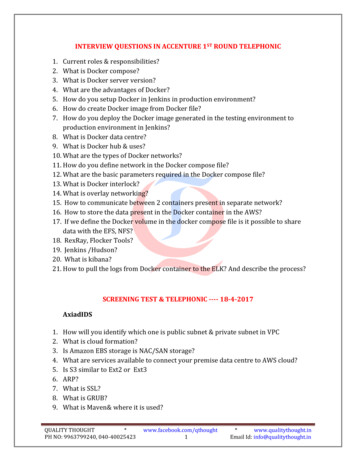
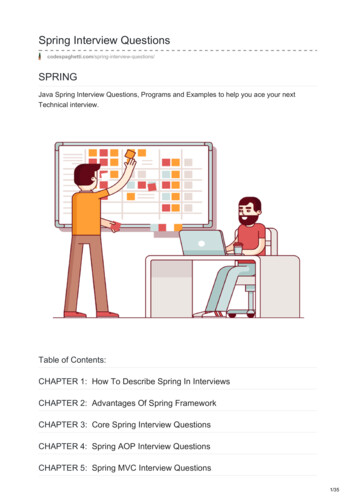
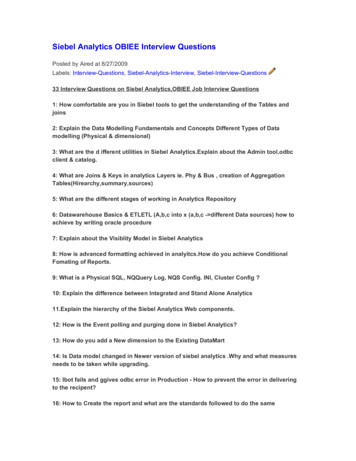
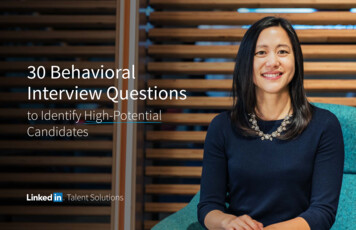
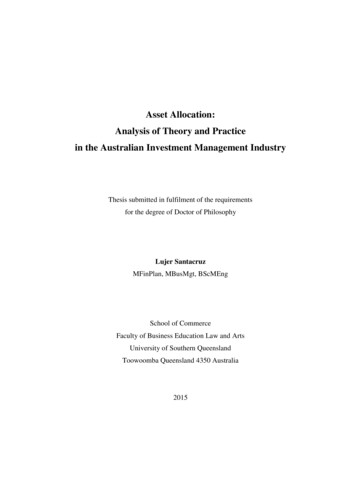
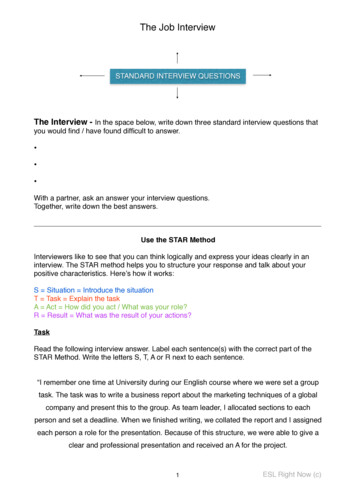
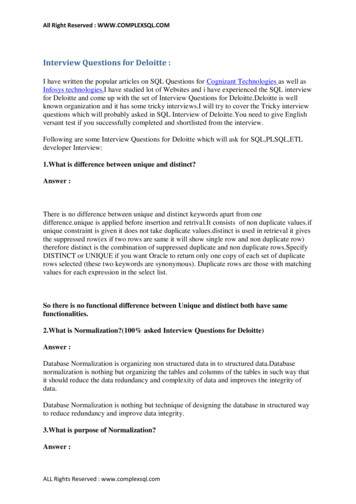
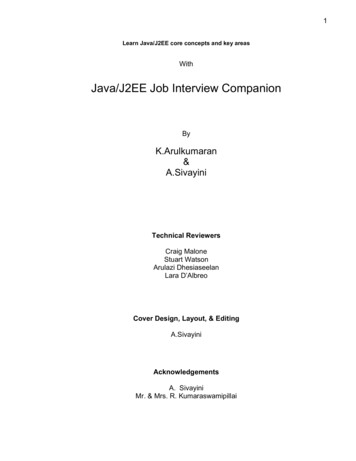
![Informatica Interview Questions and Answers [Scenario-Based]](/img/2/informatica-interview-questions-and-answers-scenario-based-1.jpg)
